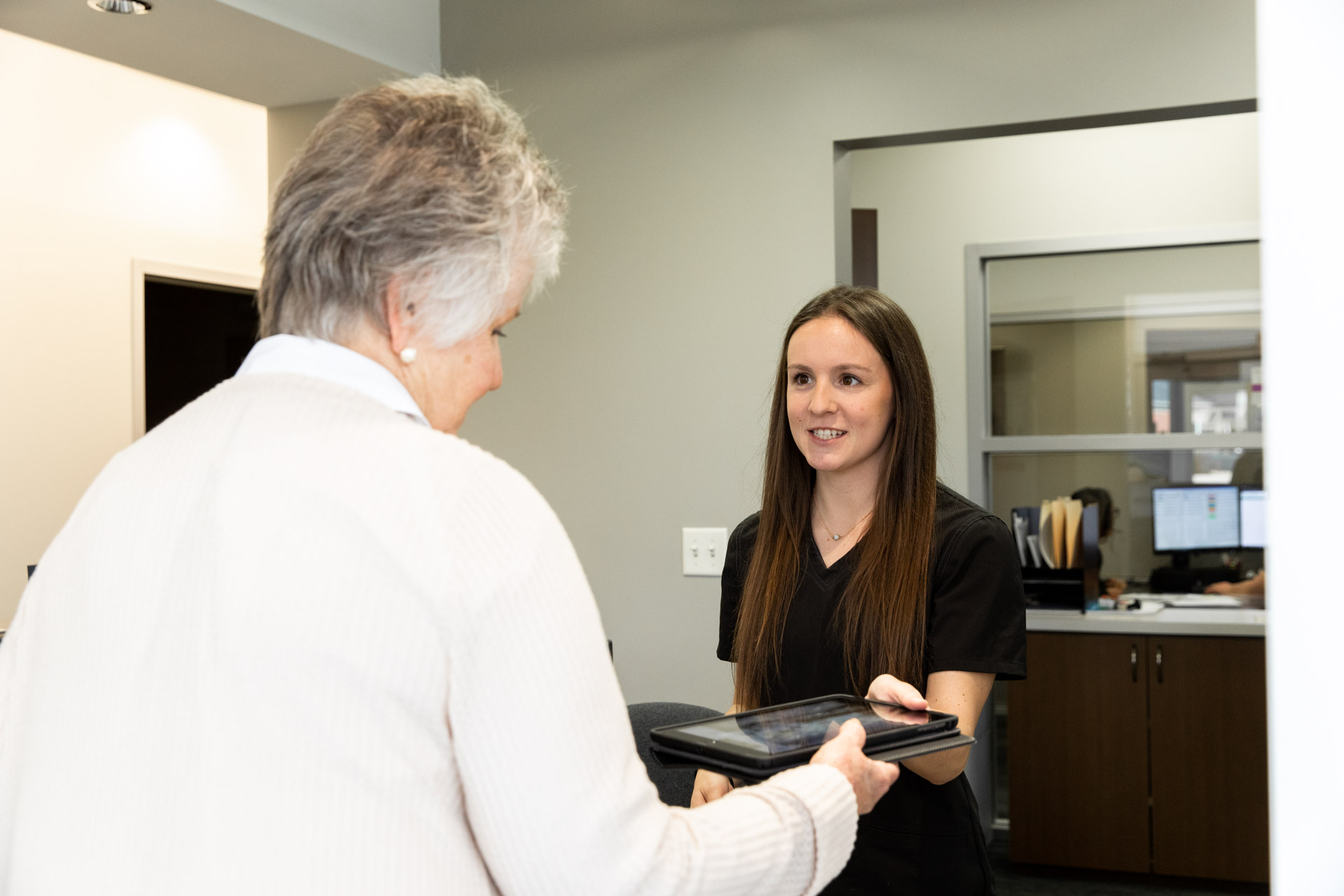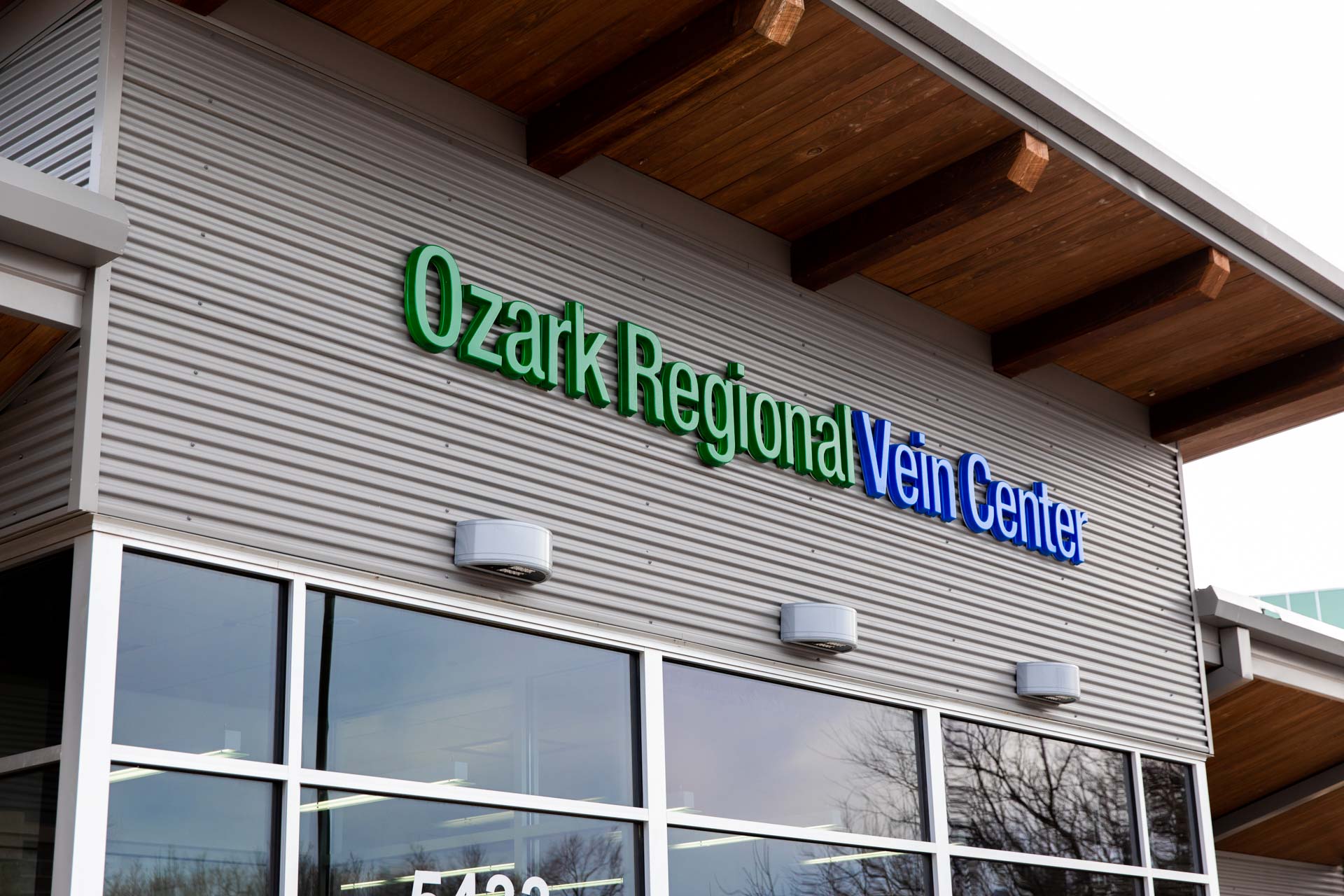Your body is always working, even when you don’t realize it. The vascular system, in particular, is a labyrinth of twisting veins and arteries, all pumping blood to different locations across the body.
This process is so complicated, it’s a wonder that it doesn’t break down more often. Of course, it isn’t perfect, and if anything impedes your vascular system from working properly—like a deep vein clot—you can run into some serious problems. That’s where we come in.
At Ozark Regional Vein & Artery Center, our experts can treat your vascular condition. Read on to learn if you could benefit from deep vein clot treatment in Rogers, AR.
How do blood clots form?
When the blood flowing through your vascular system slows down, you risk forming a blood clot. But what causes the blood to slow down in the first place? A variety of factors may contribute to the formation of a blood clot in your veins.
As we age, we run a higher risk of developing blood clots. Genetics may also be a contributing factor. If you have a history of blood clots in your family, you should keep an eye out for common symptoms.
Other medical conditions may cause blood clots, as well. Obesity and high cholesterol may lead to a higher risk of clot formation.
Preventing Blood Clots
There are some steps you can take to prevent blood clots, so you won’t need to schedule a deep vein clot treatment in Rogers, AR. Maintaining a healthy lifestyle is always a good idea, but it’s especially useful if you want to lower the risk of forming a blood clot.
Because obesity and cholesterol can lead to blood clots, eating healthy and exercising can help minimize your risk. Salty foods, especially, may lead to the formation of a blood clot.

It’s also important to stay active throughout your day-to-day life, as inactivity can cause blood clots to form, too,
Common Blood Clot Symptoms
If you have any of the conditions that commonly lead to blood clots, then it’s a good idea to be aware of common blood clot symptoms. You may have a blood clot if you’ve noticed any of the following symptoms:
- Swollen legs
- Warmness in the legs
- Red or dark colors in the skin around painful areas
- Throbbing in a single leg while standing or walking
These symptoms may result from a number of different conditions, so if you’re concerned that you have a blood clot, reach out to a provider. Our team members at Ozark can help diagnose the formation of a blood clot.
Identifying Your Blood Clots
It’s not always obvious that you need deep vein clot treatment in Rogers, AR. It is often impossible for providers to diagnose vascular conditions by examining the surface of the skin. Fortunately, at Ozark, we offer a variety of imaging options to identify conditions beneath the surface. These imaging options include:
- Angiogram
- Ankle–Brachial Index (or ABI Test)
- Carotid Duplex
- Duplex Ultrasound
These imaging options are each effective at scanning for particular conditions in different areas across the body. Some are useful for monitoring specific locations in the vascular system, whereas others can scan the entire system as a whole.
If you meet with our team with concerns about a blood clot, we can find the right imaging test for you.
Deep Vein Thrombosis
If you’re susceptible to blood clots, you may be at risk of deep vein thrombosis (or DVT). DVT is a term for the formation of a blood clot in one of the body’s deeper veins.
DVT can occur in a number of places across the body, from the arms to the pelvis. However, the most common location for DVT is the legs.
Some people are more susceptible to DVT than others. If you have recently given birth or are currently pregnant, then you might have an increased risk for deep vein thrombosis. You should also be wary of DVT if you have an indwelling catheter.
Any patients who suspect they may have DVT should talk to a provider immediately.
The Results of DVT
It’s important to seek treatment if you suspect you may have DVT. Be wary of common symptoms. The symptoms of DVT are similar to symptoms stemming from general blood clots, like pain, darkened skin, and warmth in the affected area.
You may feel tempted to ignore your condition, especially if the symptoms aren’t harsh or bothersome. But untreated DVT can cause serious problems.
Severe cases of DVT can lead to decreased blood flow to the heart, meaning that DVT patients may suffer from a stroke, heart attack, or pulmonary embolism. But there’s no reason to worry—our qualified team can perform a deep vein clot treatment in Rogers, AR.
Finding Your Treatment
At Ozark Regional Vein & Artery Center, we have a number of effective options available for anyone looking for deep vein clot treatment in Rogers, AR. But in order to find the right treatment for your needs, we first need to complete a consultation.

During this process, you’ll sit down with a member of our team. We’ll discuss your treatment goals and your condition. You can ask any questions you may have about the process, and we’ll go over your medical history.
Our providers will work to diagnose your condition, and if we find that you may be suffering from DVT, we’ll develop a treatment plan to clear blocked veins.
Our Team
Our team of providers at Ozark Regional Vein & Artery Center has the training necessary to treat blood clots.
Because the vast majority of people are uneducated about the intricacies of the vascular system, they need a qualified team behind them. Our team works with patients like you every day, diagnosing and treating problematic vein conditions.
If you’ve been worried about the idea of treating your DVT, our providers can help assuage your concerns.
Our combined years of practical experience can help us identify a treatment to eliminate your deep vein thrombosis and prevent serious complications. So what treatment options are available for DVT at Ozark?
Blood Thinners
If you’re looking for a nonsurgical option for deep vein clot treatment in Rogers, AR, then we may prescribe blood thinners.
We treat the majority of patients suffering from DVT with these medications. As blocked veins cause DVT, a blood thinner can help prevent the condition from getting worse.
Blood thinners may be an effective option for individuals looking to prevent the formation of additional blood clots. They can also help stop any pre-existing blood clots from growing. Your provider will decide which blood thinner is right for you based on the specifics of your body and condition.
Thrombolytics
Another nonsurgical option for deep vein clot treatment in Rogers, AR, is thrombolytics. Thrombolytics, commonly referred to as “clot-busting drugs,” help in the breakdown of clots that are obstructing deep veins in the body.
Doctors most often administer thrombolytics during an emergency medical situation, rather than being a pharmaceutical or over-the-counter medication.
A medical professional may use thrombolytics immediately following a stroke, as they can help clear your vascular system of blockages. Because they are enzymes, thrombolytics are very effective at dissolving the proteins in blood clots.
Hopefully, you can treat DVT before it becomes a medical crisis, and treatment with thrombolytics will not be necessary.
Thrombectomy
We also have a treatment option for any patients in need of surgical intervention. A thrombectomy is a procedure to remove blood clots manually from blocked veins.
During this process, a provider will make an incision near the clogged vein and insert a wire catheter into the treatment area. Once the provider has reached the blocked vein, they can remove the clot with a balloon catheter.
After the surgeon removes the blood clot, they will repair the opened blood vessel, and then the procedure will be complete. Your provider will monitor your condition as you come out of sedation.
Recovery Following a Thrombectomy
After a thrombectomy for deep vein clot treatment in Rogers, AR, your provider will let you know what steps you can take to recover most effectively.
Because this is a surgical procedure, you will likely need to adjust your schedule to ensure the healing process goes uninterrupted. You may also need to clean the incision site at home.
If you’re a particularly active person, your provider can inform you when it is safe to resume intensive exercise routines. Be sure to ask any questions you have about the recovery process—your provider is a resource, so take advantage of that resource.
Sit Down With Our Team
Don’t ignore a condition like DVT. If you’re suffering from symptoms of a blood clot disorder, talk with our specialists about a deep vein clot treatment in Rogers, AR.

Our providers can examine your condition and find a treatment that will suit your needs. At Ozark Regional Vein & Artery Center, our providers can offer advice and assistance throughout every step of the treatment process.
Waiting to schedule a deep vein treatment can have serious consequences, so eliminate the problem before it becomes one. Schedule a consultation with our team today.

